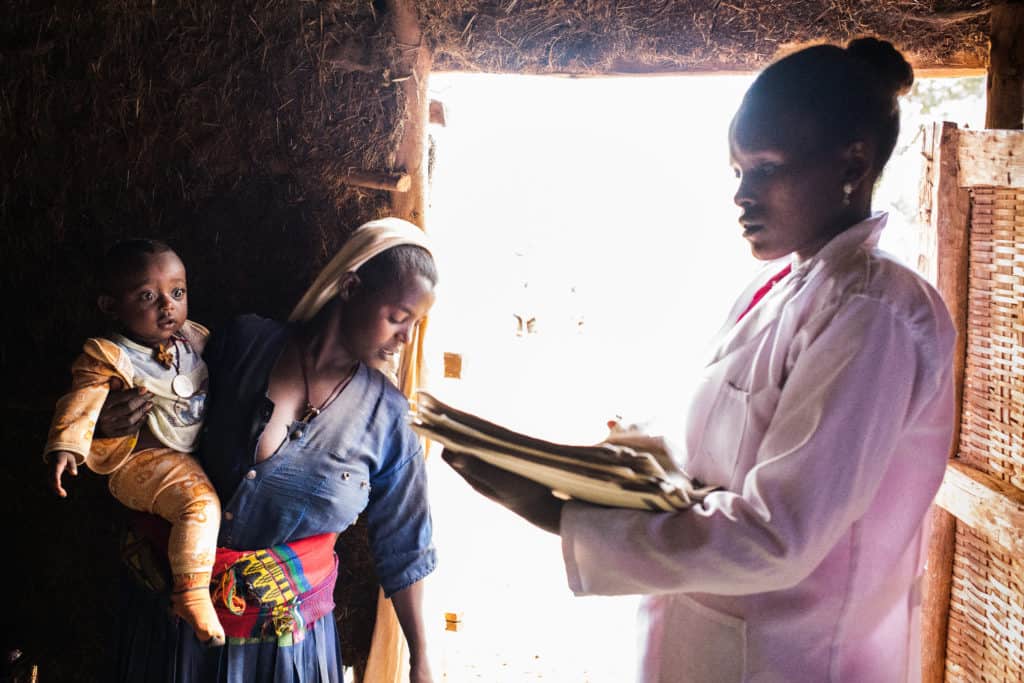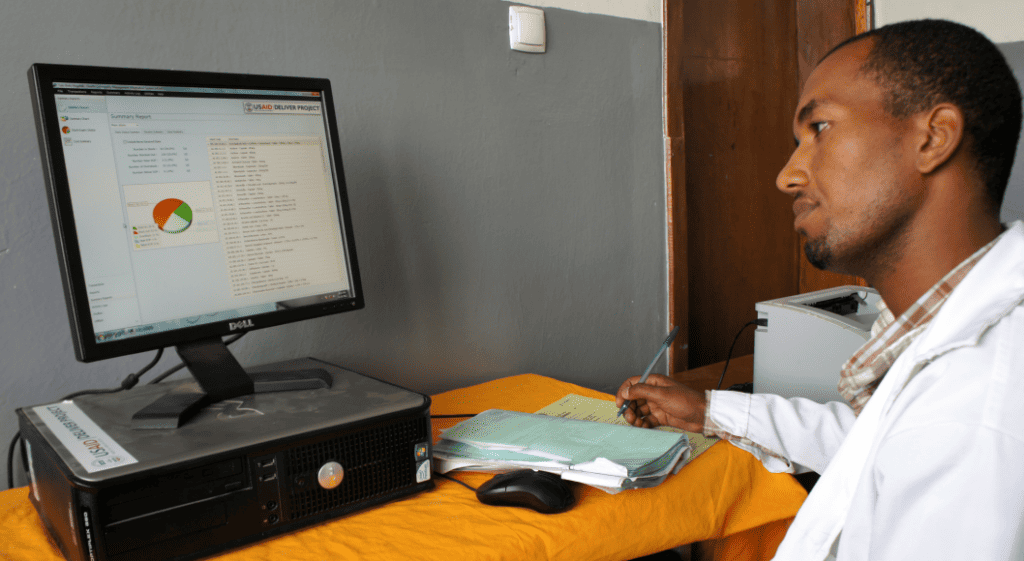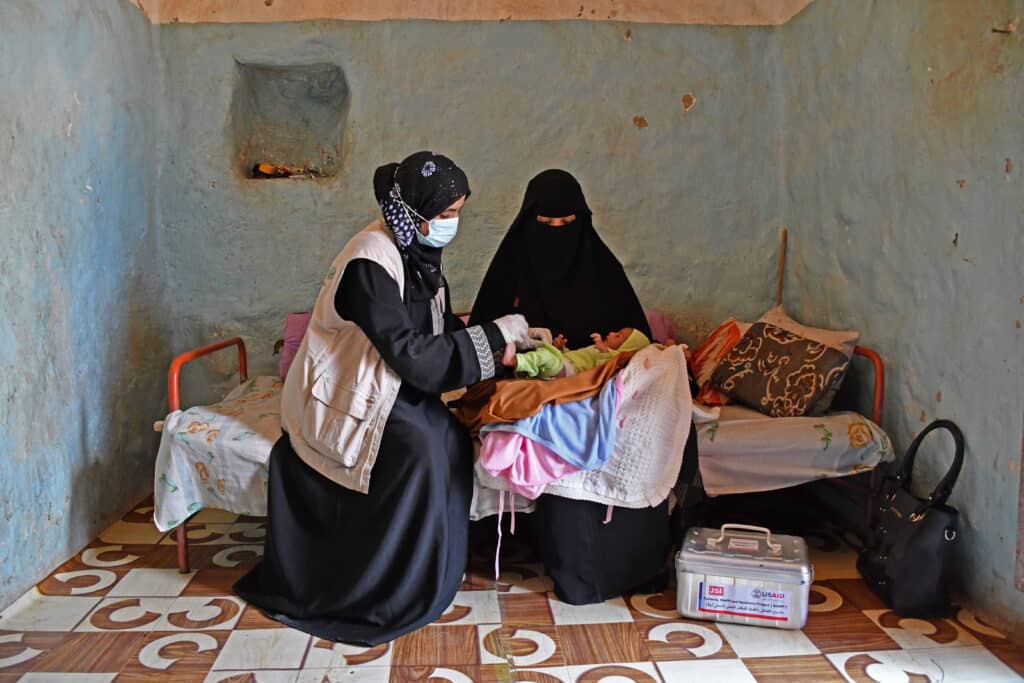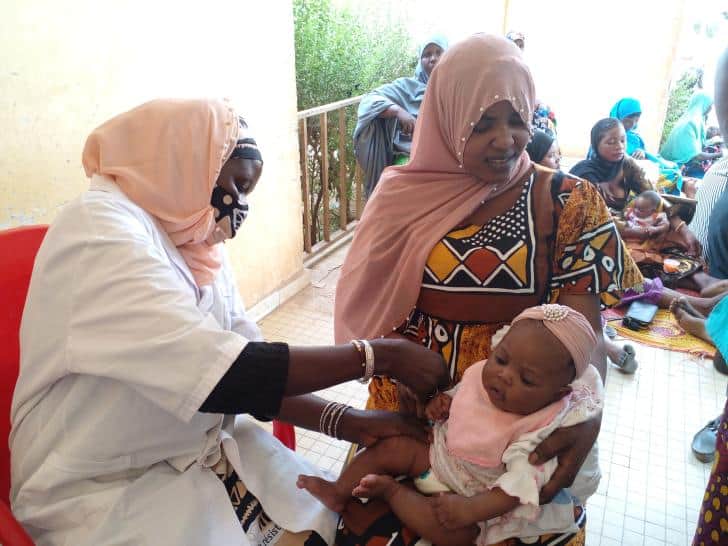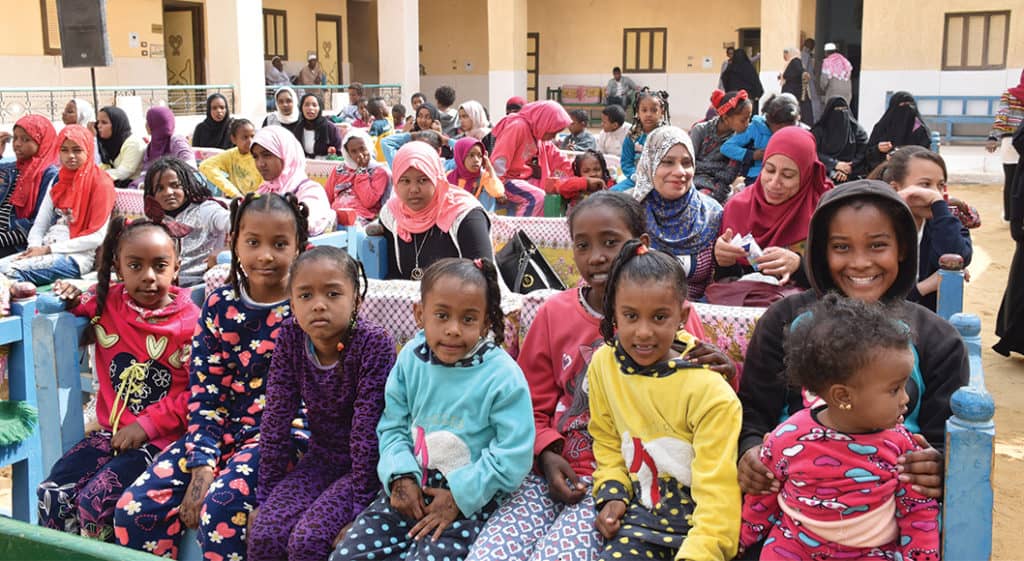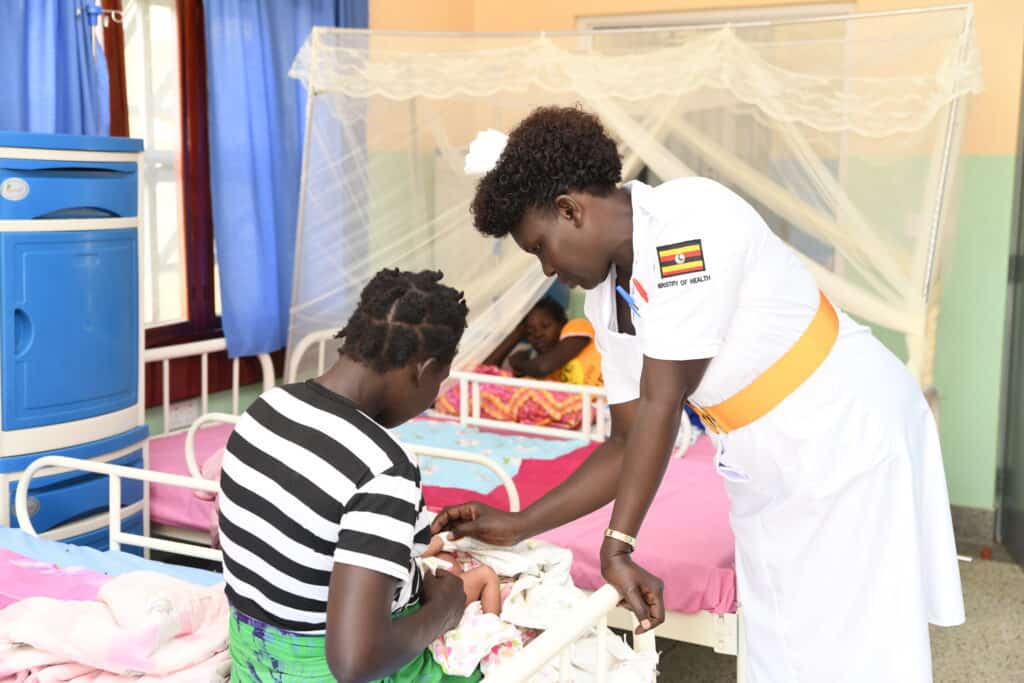This website uses cookies so that we can provide you with the best user experience possible. Cookie information is stored in your browser and performs functions such as recognizing you when you return to our website and helping our team to understand which sections of the website you find most interesting and useful.
The foundation of JSI’s mission is a positive health journey for all. For many people, that journey begins at the primary health care level. At this year’s International Conference on Primary Healthcare (ICPHC), JSI will join partners, funders, and thought leaders in Addis Ababa, Ethiopia to share lessons and chart a path to improve equity in and quality of primary health care delivery. #JSIatICPHC
Our Sessions @ ICPHC
Wednesday, September 6
Strengthening Primary Healthcare Information Systems
Concurrent Session B7 | 12:15-15:15
This session will outline Ethiopia’s Health Sector Transformation Plan’s (HSTP) priority to bring digital health innovations to the primary health sector and the plan’s effect on primary health services. Discover how digital health practices have improved communication, data use, and accessibility while reducing disparities in access, and the challenges that HSTP and partners have yet to overcome. Moderated by Tariku Nigatu of JSI, presentations will include:
- Improve primary healthcare with digital governance: the framework for efficient system control and decision-making. Rabeal Tadesse, JSI.
- Improved essential primary healthcare service provision on electronic community health system platform: preliminary findings from implementation research. Alemnesh H. Mirkuzie, JSI.
- The gender-digital, health-health information system divide in Ethiopia: evidence from a national survey. Selamawit Meressa, JSI.
Thursday, September 7
Engaging Communities for Better Primary Healthcare
Concurrent Session C3 | 10:00-11:00
The Astana declaration reaffirms the global commitment to deliver high-quality primary health care services to individuals, families, and communities. Experiences in low- and middle-income countries have demonstrated that contextualized community engagement strategies are critical components of strong primary health systems. A well-designed community health program enhances linkages between families and communities, resulting in significant improvements in knowledge, skills, and resources needed to engage people in healthy practices. Moderated by Wuleta Betemariam of JSI, this session will include:
- Mental health and psychosocial support for Sudan Ebola-affected communities in the post-Ebola period in the districts of Mubende, Kassanda, and Kyegegwa in Uganda. Musa Wamala, Uganda Ministry of Health.
- Lesson learned from the primary healthcare community scorecard implementation in selected provinces in Cambodia. Chanthorn Phorng, Khmer HIV/AIDS NGO Alliance.
- Harnessing the power of community health management committees in India – lessons learned and recommendations. Neeraj Agarwal, Jhpiego India.
- Design and implementation of a village health strategy in bridging families and communities with the health system in Ethiopia. Dessalew Emaway, JSI.
Interactive Roundtable Sessions
11:15-12:00
- Aligning stakeholder support for improved reproductive, maternal, newborn, and child health commodity availability: insights from a Kenyan supply chain landscaping exercise. Govanna Star and Ken Onyango, inSupply Health, Ltd. (a JSI affiliate).
- Re-imaging community involvement to increase immunization coverage in humanitarian context in Southwest Region of Burkina Faso. Noel Kabore, JSI.
Evidence Generation and Use for Enhancing Primary Health Care
Concurrent Session | 14:00-15:00
Implementation of national policies, strategies, and plans driving primary healthcare must be measured to determine what is working and what mid-course adjustments and adaptations are needed. Consequently, a considerable amount of data is being generated and consumed at the primary healthcare level. Countries are investing in data capturing, analysis, and use for decision-making at the point of data collection. This investment is also critical in bringing the required improvement of the quality and equity of care at PHC level. This session will showcase the critical role of data in enhancing primary healthcare services by presenting different initiatives designed for enhanced data analytics and use, including case studies on real-time monitoring and integrated analytics. Moderated by, Suneeta Sharma, Palladium, this session includes presentations:
- Primary healthcare PI, focusing on sub-national measurement. Joseph Ross, Ariadne Labs
- Common digital data systems for generating and using data for primary healthcare performance monitoring. Patrick Gichuki, Palladium
- An innovative approach to improve the analytics and use of data at the PHC level: Data.FI. Shreshth Mawandia, Data.FI
- COVID-19 and the Integrated Health Program in Nigeria. Yusuf Suraj, USAID-Nigeria
- Monitoring the implementation of maternal and child health, family planning, and reproductive health in the post-COVID 19 era: the MOMENTUM experience. Soumya Alva, JSI
Co-creating Alignment with Government Policies and Plans
Concurrent Session 5 | 14:00-15:00
A strong primary health care system is supported by a partnership that directs sufficient human, technological, financial, and information resources to improve outcomes for the system’s users. Moderated by Binyam Desta of JSI, this session will include:
- A capacity building and mentorship program where local universities provide support to the Ministry of Health to improve the health information system maturity and its contribution to continuously improve the primary health care programming. Keneni Gutema Negeri, Hawassa University.
- The evolution of local civil society organization’s engagement to strengthen the multi-sectoral solutions to primary health care. Biruhtesfa Bekele, JSI.
- A youth-led small private enterprises engagement to improve the health information system of Ethiopia and provide continuous support to improve the functionality of the health information system in Ethiopia. Yidnekachew Tefera, JSI.
Our Projects
JSI’s Improve Primary Health Care Service Delivery project launched in 2022 to expand high-quality health services through evidence-based, primary health care (PHC) system strengthening. Funded by Bill & Melinda Gates Foundation, the project’s ultimate goal is to improve the efficacy of and linkage between PHC delivery platforms, in order to better reproductive, maternal, newborn, child, adolescent health, and nutrition outcomes across Ethiopia
The CHISU project will serve as one of the USAID Bureau for Global Health, Office of Health Systems’ flagship data and information system projects. The project will strengthen health information systems, interoperable information architecture, and data use, and support countries’ self-reliance by enhancing capacity for local leadership and engagement in every aspect of health data.
The USAID-supported Systems, Health, and Resiliency Project (SHARP) (2019-2023) focused on improving the quality and accessibility of health services with an emphasis on reproductive, maternal, newborn, child health, and nutrition, especially in hard-to-reach areas. SHARP’s three goals were to improve maternal and child health outcomes, increase community engagement in the health sector, and improve the resiliency of Yemen’s health system.
MOMENTUM Integrated Health Resilience is a global project designed to strengthen quality maternal, newborn, and child health, voluntary family planning, and reproductive health care and service delivery in fragile settings. While considerable progress has been made in reducing maternal and child mortality globally, achievements have been uneven, and much of the remaining preventable maternal and child deaths are now concentrated in fragile settings. Our work focuses on reducing maternal and child mortality and morbidity by increasing health resilience of families, communities, and nation-states.
Egypt’s population rose from 72 million in 2006 to 100 million in 2020. This growth is primarily due to an increasing birth rate, from an average of 3.0 births per woman in 2008 to 3.5 in 2013. The Strengthening Egypt’s Family Planning Program Activity works with the Egyptian government, through the Ministry of Health and Population/Family Planning Sector and National Population Council, to decelerate Egypt’s rapid population growth by reducing the unmet need of women and men for family planning counseling services and methods through evidence-based planning, decision making, and policy formulation.
The five-year USAID-funded U.S. President’s Malaria Initiative Malaria Reduction Activity in Uganda aims to improve the survival and well-being of Uganda’s most vulnerable pregnant women and children in selected regions. The Activity works with the Government of Uganda to improve technical, managerial, financial, and leadership capacity at all levels of the health system. The Activity is strengthening community and household capacity to prevent malaria and to access high-quality malaria services, while maintaining gains made at the health facility level.

